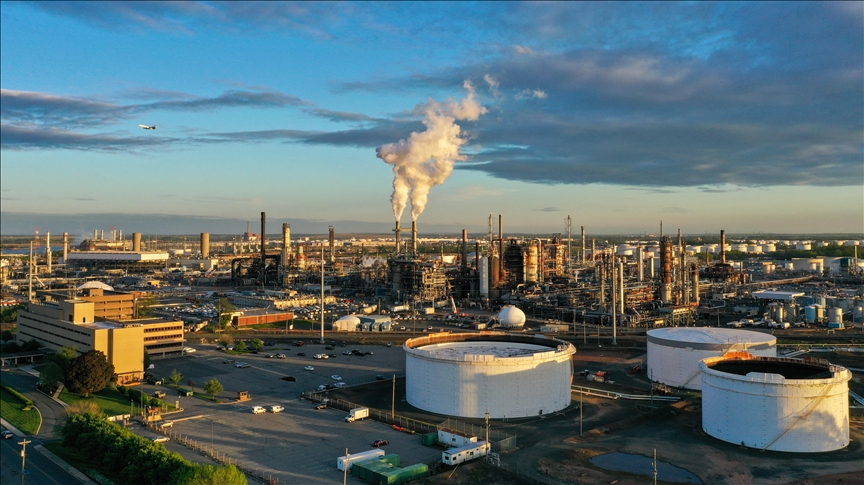

By Anadolu Agency
ANKARA
Oil prices increased on Thursday over escalating tension in the Middle East and expectations of the US Federal Reserve interest rate reductions in March.
The international benchmark crude Brent traded at $79.65 per barrel at 0752 GMT, a 0.14% increase from the closing price of $79.54 a barrel in the previous trading session on Wednesday.
The American benchmark, West Texas Intermediate (WTI), traded at the same time at $74.14 per barrel, up 0.04% from Wednesday’s close of $74.11 per barrel.
Both benchmarks eased during the previous trading session as some global shipping companies, including Danish Maersk, announced plans to restart shipping operations along the Red Sea after trade was halted due to the recent attacks by the Yemeni Houthi rebel group on sea-faring vessels in the Red Sea.
The Houthi group has repeatedly threatened to target ships owned or operated by Israeli companies ‘in solidarity with Palestine’ and has urged countries to withdraw their citizens working within the crews of these ships.
The French CMA CGM shipping company said it was working on plans to gradually increase the number of sailings through the Red Sea.
“We are currently devising plans for the gradual increase in the number of vessels transiting through the Suez Canal. We are monitoring the situation constantly and we stand ready to promptly reassess and adjust our plans as needed,” the company said in a statement.
However, persistent fears of rising tension in the region, especially in the event of the possible inclusion of Iran in support of Hamas forces in Palestine, might further disrupt regional trade routes and impede price increases.
Predictions of the Fed’s approach to its two-year fight against inflation with the likelihood of interest rate reductions are also supporting higher prices.
According to analysts, macroeconomic data set to be released in the US later on Thursday will offer investors indicators about the economy’s direction.
Weak demand signals in US
The American Petroleum Institute (API) late Wednesday announced an estimated increase of nearly 1.8 million barrels in US crude oil inventories, against the market expectation of a rise of 939,000 barrels.
If the US Energy Information Administration (EIA) confirms the stock build when it releases actual data on oil stocks later on Thursday, prices could fall.
We use cookies on our website to give you a better experience, improve performance, and for analytics. For more information, please see our Cookie Policy By clicking “Accept” you agree to our use of cookies.
Read More